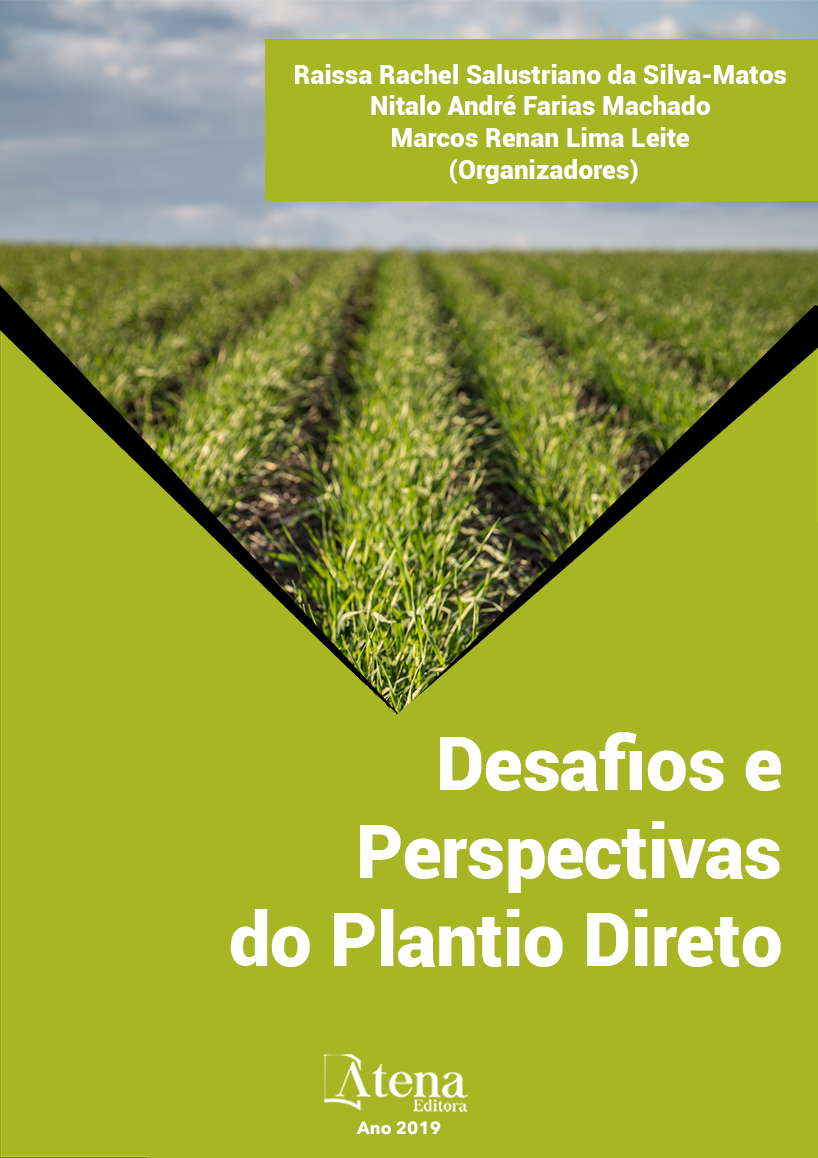
AVALIAÇÃO DO RENDIMENTO DE FEIJOEIRO DE DIFERENTES TIPOS DE CRESCIMENTO NOS PLANTIOS DAS “ÁGUAS E SECA” SUBMETIDOS À APLICAÇÕES DE HERBICIDA PRÉ E PÓS EMERGENTE
O feijão é um alimento típica do
Brasil fonte de proteína vegetal, vitaminas, sais
minerais, ferro, cálcio e fósforo. Este estudo
objetivou avaliar a capacidade produtiva de
genótipos de feijão de diferentes tipos de
crescimento sob aplicação de herbicida préemergente
e pós-emergente em relação à
comunidade infestante de plantas daninhas nas
condições edafoclimáticas do cerrado mineiro,
nas safras das ‘’águas’’ e ‘’seca’’. Foi utilizado
o delineamento inteiramente casualizado,
em esquema de parcelas subdivididas, com
quatro repetições. Nas parcelas empregaramse
três cultivares de feijão com diferentes tipos
de crescimento (Pérola = Tipo II/III (Semiereta),
Aporé = Tipo III (Semi-prostada) e BRS
Radiante = Tipo I (Ereto)) e nas sub-parcelas
dois tipos de manejo de plantas daninhas: área
aplicada herbicida pré-emergente seguida de
aplicação pós-emergente e área somente com
aplicação pós-emergente em comparativo com
testemunha sem aplicação de herbicida. As
cultivares Aporé e Pérola, ramificam mais e
cobrem melhor o solo tendo como resultado
menor infestação de plantas daninhas na área
de cultivo. O manejo das plantas daninhas com
o uso de herbicidas favoreceu o crescimento,
desenvolvimento e produção das plantas
de feijão. Conclui-se que na ausência das
plantas daninhas, as plantas de feijão foram
mais eficientes na exploração dos recursos
do meio. Sob a aplicação de herbicida em
pré e pós-emergência o feijoeiro apresenta
acréscimos de rendimento de grãos em relação
a parcelas que receberam somente herbicida
pós-emergente nas safras das águas e seca, e
superior respectivamente, em comparação com
a ausência de herbicidas.
AVALIAÇÃO DO RENDIMENTO DE FEIJOEIRO DE DIFERENTES TIPOS DE CRESCIMENTO NOS PLANTIOS DAS “ÁGUAS E SECA” SUBMETIDOS À APLICAÇÕES DE HERBICIDA PRÉ E PÓS EMERGENTE
-
DOI: 10.22533/at.ed.2391917102
-
Palavras-chave: Feijão. Plantas daninhas. Herbicidas.
-
Keywords: Beans. Weeds. Herbicides
-
Abstract:
Beans are a typical Brazilian food source of vegetable protein, vitamins,
minerals, iron, calcium and phosphorus. The objective of this study was to evaluate the
productive capacity of bean genotypes of different growth types under pre-emergence
and post-emergence herbicide application in relation to the weed community in the
edaphoclimatic conditions of the cerrado, ‘’ and ‘’ dry ‘’. A completely randomized
design was used, in a subdivided plots scheme, with four replications. In the plots
three bean cultivars with different types of growth were used (Pérola = Type II / III
(Semi-erect), Aporé = Type III (Semi-prostada) and BRS Radiante = Type I plots two
types of weed management: pre-emergent herbicide applied area followed by postemergence
application and area only with post-emergence application in comparison
with control without herbicide application. The cultivars Aporé and Pérola branched
further and covered the soil better, resulting in lower weed infestation in the growing
area. Weed management with the use of herbicides favored the growth, development
and production of bean plants. It is concluded that in the absence of weeds, the bean
plants were more efficient in the exploitation of the resources of the environment. Under
pre-emergence and post-emergence herbicide application, the bean yield increases of
grains in relation to plots that received only emergent herbicide in the crops of the water
and drought, and higher respectively, compared to the absence of herbicides.
-
Número de páginas: 15
- Rafael dos Anjos Nunes
- Fabrício Andrade Barbosa
- Brenda Ferreira Arantes
- Clauber Barbosa de Alcântara
- Giselia Gonçalves de Castro


